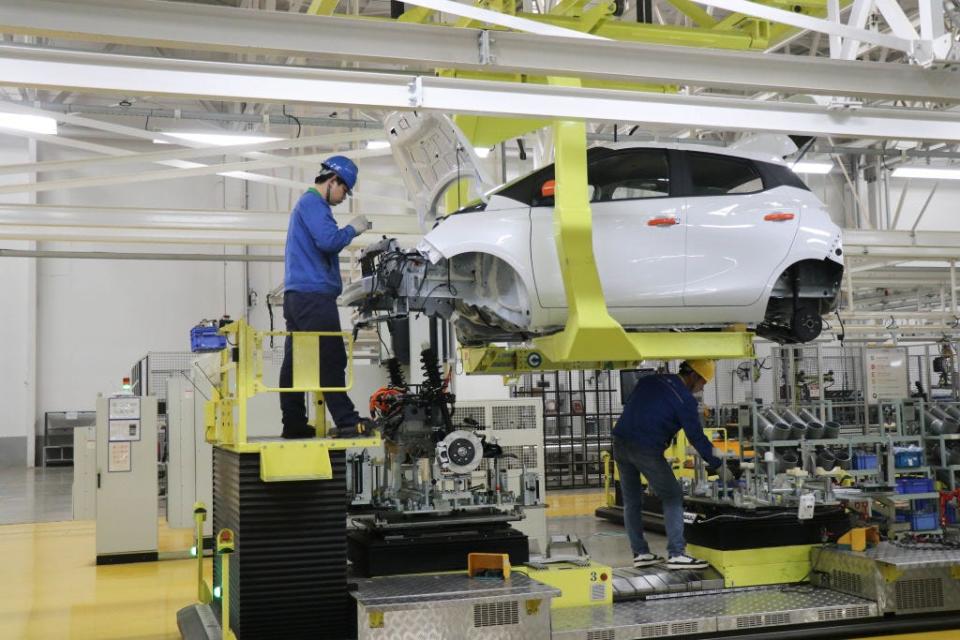The EU slapped massive tariff hikes on China's EV giants. Investors don't seem to care.

The European Commission announced additional tariffs on Chinese electric vehicle imports on Wednesday.
The tariffs follow a probe into Chinese subsidies and include up to 48.1% in duties.
Stocks of China's EV makers surged despite the tariffs, driven by perceived manageability.
The European Commission, or EC, announced it will be slapping hefty tariffs on China's electric vehicle imports — but most investors seem unfazed.
On Wednesday, the EC said it will impose tariffs of up to 38.1% on Chinese EV imports from next month — on top of existing 10% duties.
All Chinese EV imports will be subject to additional tariffs from next month, but the commission singled out three major EV makers: BYD, Geely, and SAIC.
BYD will be subject to an additional 17.4% in duties, while Geely will pay an extra 20%. State-backed SAIC will be subject to additional levies of 38.1%.
On Thursday — less than a day after EC dropped its bombshell announcement — the shares of most Chinese EV automakers were up.
EV giant BYD was surging as much as 8.8% in Hong Kong, while Geely gained as much as 2.4%. The shares of EV startups Nio and Li Auto were also higher.
Shanghai-listed SAIC was an outlier in Thursday's Chinese stock rally, declining by as much as 3%.
The unlikely rally for most Chinese EV companies appears to stem from the perception that the European Union's tariffs were "modest," as Vincent Sun, an equity analyst at Morningstar, wrote in a note on Wednesday.
After all, US President Joe Biden's administration is levying a 100% tax on Chinese EVs.
BYD, one of the world's largest EV makers alongside Tesla, would be less impacted by the new EU tariffs than its peers, Bloomberg Intelligence analyst Joanna Chen said on Thursday.
"BYD will likely be able to absorb most of the burden from EU import duties, since its cars carry peer-beating profitability," said Chen.
Even though the market indicates that the EU's tariff hike on Chinese EVs is manageable, Beijing is still extremely displeased.
"I would like to stress that the anti-subsidy probe is typical protectionism," Chinese foreign ministry spokesperson Lin Jian said of the EU's tariffs on Wednesday.
"To levy additional tariffs on EVs imported from China violates market economy principles and international trade rules, disrupts China-EU economic and trade cooperation and the global automotive industrial and supply chains and will eventually hurt Europe's own interests," said Lin.
In recent months, Western countries have been lining up to criticize China for its barrage of cheap exports flooding the world's markets. They say China's dumping and unfair trade practices have hurt their economies.
However, Beijing has consistently pushed back on the West's criticisms. Chinese authorities say the West's accusations are protectionist and aimed at containing China's economic growth.
Read the original article on Business Insider

 Yahoo Autos
Yahoo Autos 